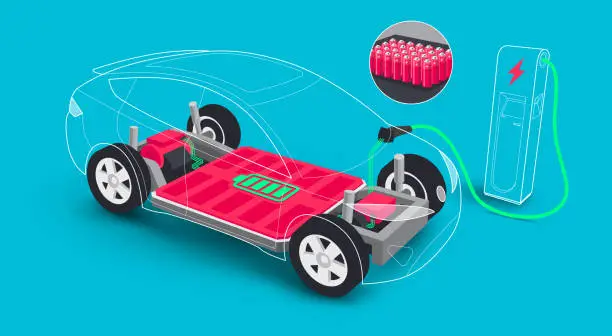Lithium-ion batteries have been the dominant battery technology for several years, powering everything from smartphones and laptops to electric vehicles and renewable energy storage systems. However, as the demand for batteries continues to grow, there is increasing interest in developing new battery technologies that could potentially offer better performance, longer lifespan, and lower costs than lithium-ion batteries. In this article, we will explore some of the battery technologies that could potentially replace lithium-ion batteries in the future.
Solid-State Batteries
One of the most promising battery technologies that could potentially replace lithium-ion batteries is solid-state batteries. Unlike lithium-ion batteries, which use liquid or gel electrolytes, solid-state batteries use solid electrolytes, which can potentially offer several advantages over traditional batteries. For example, solid-state batteries could potentially offer higher energy density, longer lifespan, and improved safety, as they are less prone to overheating and fires.
Several companies and research institutions are currently working on developing solid-state batteries, including Toyota, Samsung, and the University of Maryland. While solid-state batteries are still in the early stages of development, they have the potential to be a game-changer for the battery industry.
Metal-Air Batteries
Another promising battery technology that could potentially replace lithium-ion batteries is metal-air batteries. Metal-air batteries use oxygen from the air as the cathode, which can potentially offer high energy density and long lifespan. One of the most well-known types of metal-air batteries is the zinc-air battery, which is used in hearing aids and other small electronic devices.
However, metal-air batteries also face several challenges, including the need for a constant supply of oxygen and the potential for the metal to corrode over time. Despite these challenges, there is growing interest in developing metal-air batteries for use in electric vehicles and other applications.
Flow Batteries
Flow batteries are a type of rechargeable battery that use two liquid electrolytes, which are separated by a membrane. The electrolytes flow through the battery during charging and discharging, which can potentially offer several advantages over traditional batteries. For example, flow batteries can potentially offer high energy density, long lifespan, and the ability to scale up for use in grid-scale energy storage.
Flow batteries are currently used in some stationary energy storage systems, but they have not yet been widely adopted for other applications. However, there is growing interest in developing flow batteries for use in electric vehicles and other applications.
Graphene Batteries
Graphene is a form of carbon that has several unique properties, including high electrical conductivity and strength. Graphene batteries use graphene as the anode material, which can potentially offer several advantages over traditional batteries. For example, graphene batteries can potentially offer high energy density, fast charging, and improved safety.
Several companies and research institutions are currently working on developing graphene batteries, including the University of Manchester and Graphenea. While graphene batteries are still in the early stages of development, they have the potential to be a significant advancement in the battery industry.
Conclusion
While lithium-ion batteries are currently the dominant battery technology, there is increasing interest in developing new battery technologies that could potentially offer better performance, longer lifespan, and lower costs. Solid-state batteries, metal-air batteries, flow batteries, and graphene batteries are some of the battery technologies that could potentially replace lithium-ion batteries in the future. While these battery technologies are still in the early stages of development, they have the potential to revolutionize the battery industry and drive innovation in the energy and technology sectors. As the demand for batteries continues to grow, it will be important to carefully consider these emerging battery technologies and work to ensure a sustainable and efficient supply of batteries to meet the needs of the future.







